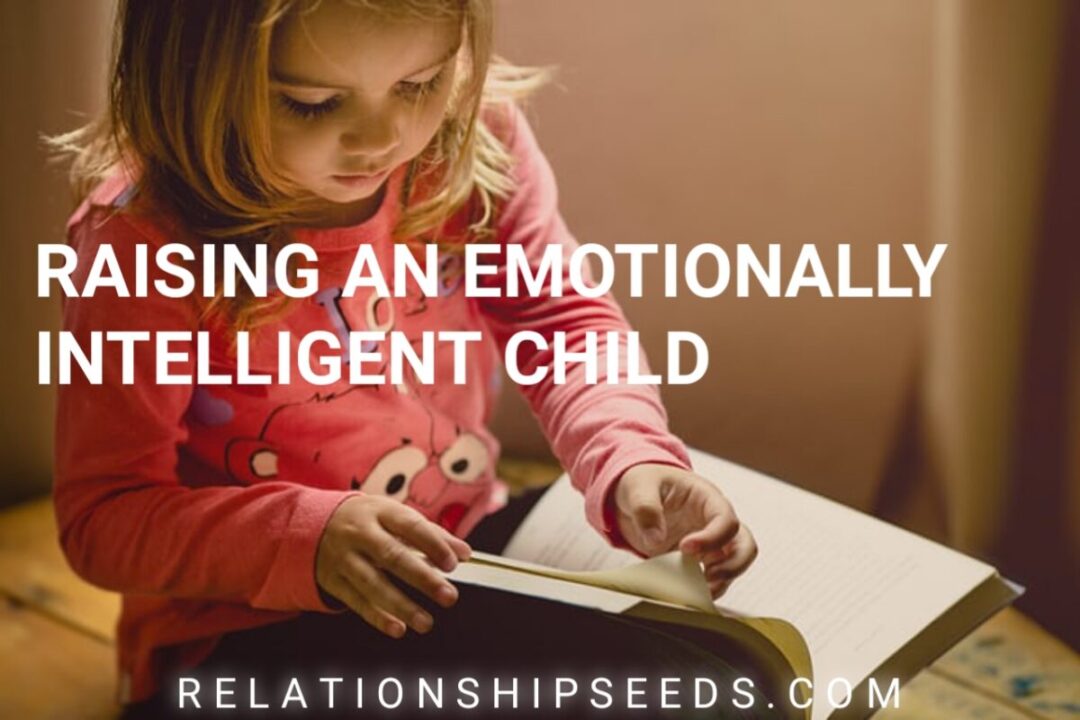Parenting tips
HOW TO RAISE AN EMOTIONALLY INTELLIGENT CHILD

Last Updated on November 11, 2025 by Joshua Isibor
RAISING AN EMOTIONALLY INTELLIGENT CHILD
In this article, we’re going to be talking about how to raise an emotionally intelligent child.
Parents and even society laid great emphasis on the Intelligence quotient (IQ). The ability to excel in intellectual activities but research has proven that intelligent quotient is never enough to excel in society, hence Emotional Intelligence.
Emotional intelligence, according to mind Tools, is the ability to understand and manage your own emotions, and those around you.
People with a high degree of emotional intelligence know what they’re feeling, what their emotions mean, and how these emotions can affect other people. This emotion ranges from fear, anger, envy, and anxiety, among others.
Ever wondered why a person would get so angry and break things around him? Why do people stab other people? Why do people with seemingly great potential never excel in life because of fear of the unknown? Why do husbands kill their wives?
Why can some people not do a public presentation?
Why do some people fail in leadership positions and others excel?
Why can some people not communicate effectively with their peers?
The list is endless, and the answer is in their level of emotional intelligence.
Yes! Emotional intelligence is in varying degrees, and the level in which you have managed to build your own is the level of control you have over yourself and your environment.
This is where you come in as a parent. You should be able to help your child build emotional intelligence.
One of the keys to raising a balanced child is EMOTIONAL INTELLIGENCE, and together we will explore the components of emotional intelligence and how to build it in your child. You can also check out my article on financial intelligence.
Components of Emotional Intelligence
1. Self-awareness:
Your child should know and express what is happening inside of him at times. It helps to understand what you are feeling and accurately describe that feeling. One way to build this is by giving your child the freedom to express his/her thoughts. Whenever you notice your child is trying to express his, kindly provide the opportunity.
- Some parents are used to muting their children. Part of allowing your child to know himself is to let your child think for himself. You are to be a guide and not a thinker for your child.
2. Self-Regulation/control:
A child who can regulate his emotions is a delight. Emotions are part of our make-up. It is not unusual to get angry, anxious, or even afraid, but it is rare to control these negative emotions.
This is where self-regulation comes in. Help your child curb impulsive behaviours. If your child has a habit of excessive eating, help him regulate it. It would help if you taught your child to master himself.
Teach your child to manage that anger. When he breaks a plate because he is angry, kindly explain the effects of that action. If he does it again, then follow through with punishment (you can also check out my article on types of punishment for your child).
Don’t let your child get away with emotional outbursts. If he doesn’t learn how to regulate it in his formative years, he might require years of counselling to correct it.
3. Empathy:
help your child to understand that people should be treated nicely. This is where you set a good example. If you don’t treat people well, your child is watching. Remember, you are your child’s first role model, and often children model their lives after their parents. So give gifts; say beautiful things about other people; help the needy, among others.
4. Social skills:
you must help your child build social skills, and there is no better avenue to develop these skills than playing. The importance of play in developing emotional intelligence cannot be undermined. In playing with peers,
Your child learns how to collaborate.
Your child learns how to communicate.
Your child learns how to react.
Play is powerful and reinforces social skills. Video games are enjoyable, but cannot replace play. Some people are social misfits today because they did not play. No parent wants a weird child, and even society will throw out an odd child. This act is why one of the essential principles of Montessori’s Learning is play. The child learns by playing with things in the environment.
5. Motivation:
Motivation is essential, and it is what keeps one going. It takes you out of your comfort zone. It allows you to overcome the stress and challenges in life. This is why your child must learn to be internally driven and motivated.
Help your child appreciate and cheer himself. Teach your child to encourage himself when no one else does. Teach your child to value himself. Speak words that build esteem. Avoid speaking derogatory words to your child. Let your child understand that failure is part of life.
Don’t shield your child from the harsh realities of life but help your child understand that he can overcome challenges.
Furthermore, teach your child to ignore negative speculations about him. Teach your child that he is complete and doesn’t require the approval of people. Your child must learn these principles to stay motivated.
I hope you have a great time raising that child. Remember, you can check out my article on how to raise a financially intelligent child.
Originally posted 2020-06-17 10:13:07.

-

 Text Messages2 years ago
Text Messages2 years agoBEST LOVE CONFESSION MESSAGES FOR HER OR HIM
-

 Health3 months ago
Health3 months ago5 Unknown Ways To Maintain Skin Health
-

 Sex Education2 months ago
Sex Education2 months ago10 Simple Hack to Make a Girl Send Her Nudes
-

 Text Messages2 years ago
Text Messages2 years agoHappy Birthday Cousin, wishes and messages
-

 Text Messages2 years ago
Text Messages2 years agoHeart Touching RIP Uncle Quotes
-

 Uncategorized3 months ago
Uncategorized3 months agoHOW TO KISS A BOY FOR THE FIRST TIME
-

 Text Messages2 years ago
Text Messages2 years agoFreaky and Dirty Paragraphs For Him Copy And Paste Yahoo
-

 Text Messages2 years ago
Text Messages2 years agoBest Good Luck Wishes Before and After Surgery, for Family and Friends













